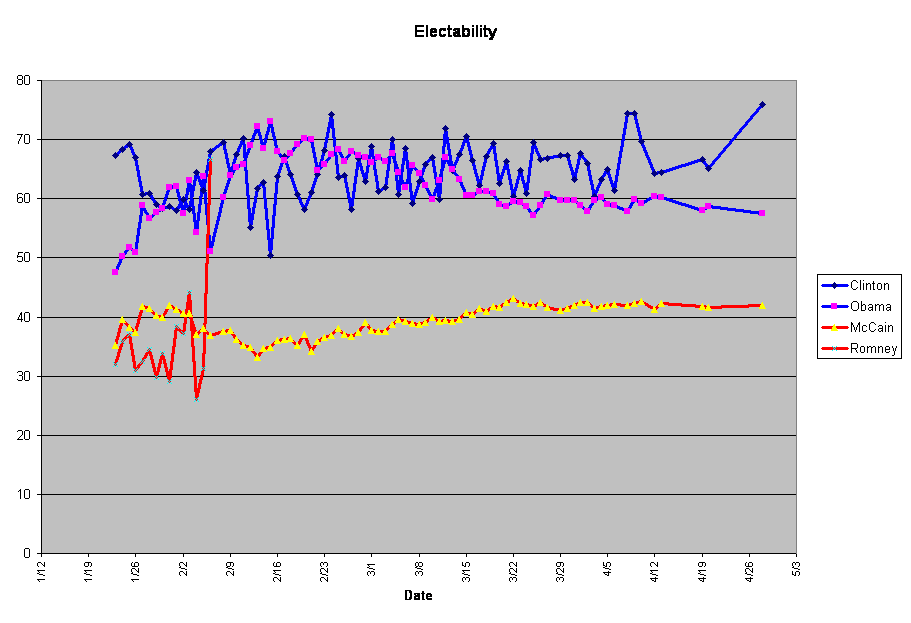I never met Einstein, which is not surprising, since he died over 20 years before I was born. [Update: Make that 12 years. See Matt Trawick’s comment below.] (The most famous physicists I have ever met, I think, are Eugene Wigner and John Wheeler, who are not exactly household names to non-scientists.) But back when I was in college I did get to know an old friend of Einstein’s pretty well.
Her name was Gabrielle Oppenheim, and she was about 95 when I knew her in the summer of 1988. Because her eyesight was very poor, she hired students to read the newspaper to her. This was a great job, which was passed on from student to student. I don’t remember how much it paid; I would have done it for nothing.
Mrs. Oppenheim told me lots of stories about Einstein. She first met him at a party in Brussels in 1911. Her husband pointed Einstein out and said, “That man will be one of the greatest physicists.” Mrs. Oppenheim’s response: “So I gave him one sandwich more.” (She later told this story to F. Murray Abraham in a Nova documentary, but I heard it first.)
She also said she was with Einstein in 1919 when he got the telegram from Sir Arthur Eddington, announcing that his observations of the bending of starlight had confirmed Einstein’s theory of general relativity. This was the event that made Einstein world-famous. But according to Mrs. Oppenheim, Einstein was much less excited about the result than the other people who were there at the time, because he had never doubted what the result would be.
She knew Einstein in Europe, but she spent much more time with him later in the U.S., when she and her husband had come to Princeton. (Her husband, Paul Oppenheim, was a philosopher.) Once, she and her husband were sailing with Einstein when the boat capsized. Her husband said, “Well, at least if we die with Einstein, we’ll be famous.”
She told me lots of other good stories. Once, she said, she was at a dinner party somewhere in Europe during World War I. A German army officer asked where she was from, and she told him she was Belgian. He replied that Germany would be invading Belgium soon. Mrs. Oppenheim said, “I was so offended by that, that I turned away and didn’t speak to him for the rest of the dinner.”
Mrs. Oppenheim told me way back then that I was “the scientist type”. Given that she hobnobbed with some of the greatest physicists of the 20th century (Bohr and others as well as Einstein), I figured she must know what she was talking about.
